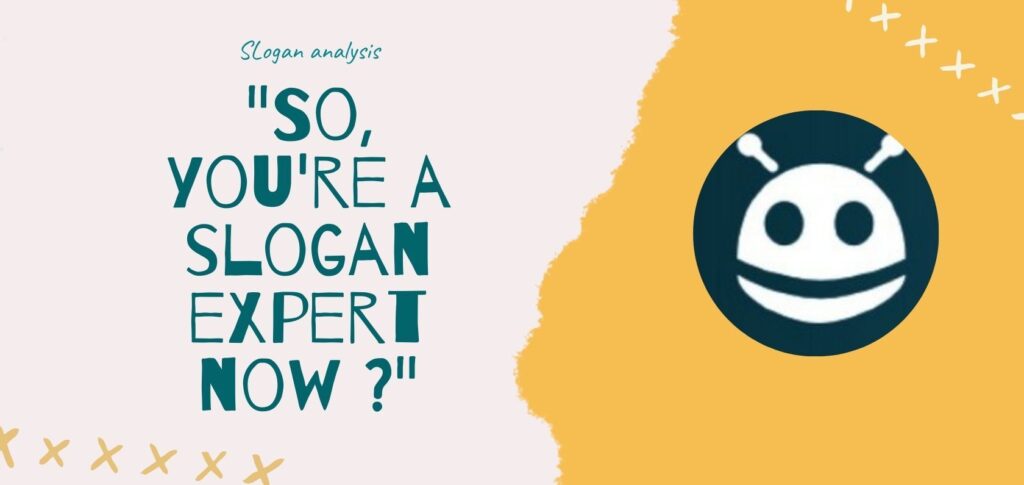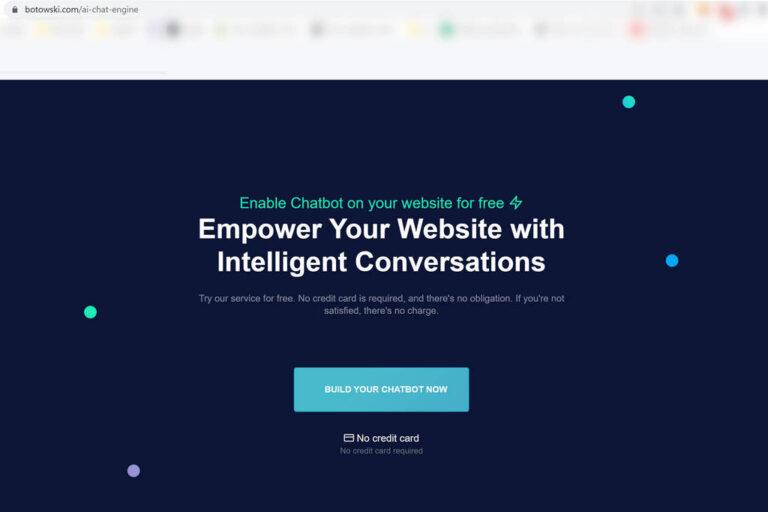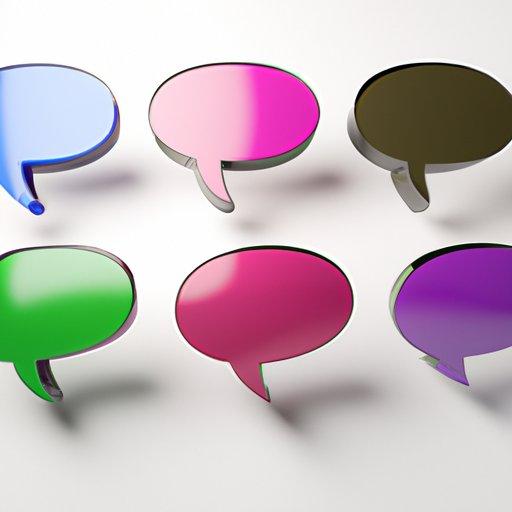We’ve asked Botowski to analyze some of the most famous slogans in the world – and got some unexpected results…

But before we continue, we just want to let you know that we have just announced a new launch of our AI slogan generator for businesses! You might want to check it out.
Famous slogans, and Botowski’s take on them
Uber’s slogan: “Evolving the way the world moves.”
Analysis: Uber is an evolving service. The slogan describes the service and their aim to improve it. It’s a simple and short slogan that also doesn’t use any technical words. It is relevant to the service and has some benefits. The slogan is not very memorable though. This is a drawback of having a slogan that describes what the service does.
The good: Simple and relevant to product offering.
The bad: Not very memorable.
Funny version: “Uber – Moving you in ways you never thought possible.
The New York Times slogan: “All the news that’s fit to print.”
Analysis: This is a “wisdom of experience” slogan. It doesn’t make an exaggerated or specific claim, just says what the company offers. It doesn’t feel very memorable, though.
The good: Wisdom of experience without exaggerated or specific claims. Short and to the point.
The bad: Not very memorable.
Funny version: “All the news we think you should read.”
Mailchimp slogan: “Get your e-mails in the inbox.”
Analysis: “Get your e-mails in the inbox” is a solid slogan with good word structure. It packs quite a few features of their service into one sentence. It’s a positive statement about their services with some benefits. The timing on the slogan reveals the benefit, “your e-mails in your inbox” is an achievable target which can immediately be put to use once the service is purchased. It’s not directly stated that you’ll get more people opening your e-mails, but the implication is there. This message matches Mailchimp’s ethos of being easy-to-use for people with little technological expertise. The message is specific and relevant to the product. This slogan also matches their tagline: send smarter emails . A minor nitpick is they could have used the word “emails” instead of e-mails. This sort of thing makes it seem like they are trying to avoid spamming.
The good: Short, to the point, specific message relevant to product offering.
The bad: The only thing that could be criticized is that it doesn’t explicitly state a benefit. When a slogan uses words like “inbox” and “emails” it could be a little confusing as to what the product does.
Funny version: “Mailchimp – the best way to spam your friends”
Nike slogan: “Just do it”
Analysis: Nike has a great slogan! It is simple, clear and effective. “Just do it” can mean many things (first of all – don’t think too much about what you want to do and just do it) which is means that Nike slogan has a great impact because of its Ambiguity. Nike always success in advertizing. The slogan is like a command and almost like a religion (“if you can dream it, you can do it.” – Walt Disney) which encourage people to buy more Nike products. The slogan is simple but it doesn’t mean that is bad – actually if you read this slogan, the nike logo immediately comes into your mind which makes Nike even more popular.
The good: Simple, easy to remember, great impact.
The bad: None
Funny version: ““Just do it, because we don’t have time to explain”.
Sony slogan (old one) – Make.Believe
Analysis: What makes sony good is that they always change their slogan at the right time. “Make.Believe” was one of the best slogans which Sony had, but now is not the time for it anymore. It has a double meaning (1 – Sony creates and 2 – Sony makes people believe) which is good because you can play with the consumers’ mind. The slogan was very popular and Sony had a lot of success using it.
The good: Simplicity, emotional, double meaning.
The bad: None
Better version: “We make. We believe.”
Funny version: “I believe I can buy”.
Sony slogan (new one) – Be Moved
Analysis: Sony slogan is really hard to understand. First, it is referring to the moving picture. Second, Sony slogan suggests that Sony takes part in creating such kind of image and will assist you realize your idea. It is mysterious. Well, they have just used a new slogan. I guess it takes some time to become popular.
The good: Sony slogan is catchy. Also, the slogan sounds like starting point for something useful.
The bad: Sony slogan is mysterious. Do you have to be moved by music? It may mean TV advertising, but it doesn’t imply that clearly. So for this reason, Sony slogan is not easy to understand and create associations. It’s hard to say what Sony wants you to feel after hearing the slogan just once.
Funny version: “Sony – We are moving”.
Wendy’s slogan – Where’s the Beef?
Analysis: Nothing deep here, but also nothing that seems to be a problem. We can see that Wendy’s slogan is directly related to the product they are selling which makes sense. We see a lot of positive connotations with the word beef and words like juicy, succulent, tender. Wendy’s scores well on consumer acceptance as their slogan is short, simple, direct and to the point. Conclusion: A clear slogan that ties in well with their product, Wendy’s seem to want you to think about beef.
The good: Clear, simple and direct.
The bad: The slogan is told as a question so it doesn’t have the full impact of a declarative statement. In some countries, where you ask questions with rising intonation the meaning is different. This could possibly be considered a bad slogan in some parts of Europe/Asia.
Better version: “The Juiciest Burgers In Town”
L’Oreal slogan – Because You’re Worth It.
Analysis: This slogan is a full statement and it leads with an active verb which makes for a very strong opening. The implication with the use of the word because is that the following statement/slogan is more powerful, so while this doesn’t really say anything explicit it implies that the product is good enough for you. Overall the sentiment is positive. The word “worth” reinforces the idea that you are good enough, capable and intelligent. And in this context, products should be just for people who are good enough and capable of using them. This fits the L’Oreal brand message that they want to empower women, which ties in with empowering their customers as well.
The good: Positive, powerful, empowering.
The bad: This slogan is probably too vague and generic to really grab anyone’s attention. It also uses a common word (“worth”) that we see in hundreds of other slogans.
Better version: “The best that you can be, because you’re worth it.”
Funny version: “Your hair will be better than you.”
M&Ms slogan – Melts in Your Mouth, Not in Your Hands
Analysis: The heading of this slogan is very positive and practical. It is a clear statement, tells the consumer what to expect from the product and that it does not deliver on that expectation. For some people this will be a negative comment, while others may view it as an amusing quirk. The name of the product implies that you are eating chocolate so this fits the brand well. It is interesting that the word “melts” makes reference to chocolate rather than M&M’s itself, which highlights an important observation about slogans – for a slogan to be effective it doesn’t have to mention the brand. In this case, M&M’s has taken a unique attribute of their product and used it to create a slogan.
The good: Very amusing quirk, practical, emphasizes the M&M’s brand values.
The bad: Nothing.
Better version: None. The current slogan is perfect.
Funny version: “Melt in Your Mouth, Lick off Your Hands.”
De Beers slogan – A Diamond Is Forever
Analysis: This a very clever, subtle and a little bit morbid way to tie a product into being forever. A diamond is forever! That’s its magic property that makes it so valuable. So buy our diamonds because they are forever, and be together forever! What’s fascinating about this slogan is that the company doesn’t actually make much money if their products are forever. The implication here though, is that you need to buy a diamond ring for that special someone because you want them with you forever. Which is, of course, entirely true and a fundamental part of most relationships. This is also kind of a sneaky way to imply that it is up to you whether or not the relationship will remain forever. If there were no diamonds, would your love still be forever?
The good: Clever, hype-inducing messaging.
The bad: There is a little bit of “dark side” to this slogan.
Better version: “For love that lasts forever”
Hubspot slogan: Inbound marketing. Handle leads, not paperwork.
Analysis: This is a classic “exaggerated claim” slogan. The whole point of the Hubspot system is to offer you leads and make them self-service, not manage them manually. This slogan would make more sense if you can provide automated email marketing solution, lead management system or the full enterprise-level software suite.
The good: short, to the point, memorable
The bad: Exaggerated claim
Botowski slogan – your new personal AI copywriter
Analysis: Ok, so this slogan is really simple and doesn’t have much in the way of a story. And that’s fine because it can be boiled down to one simple phrase to sum up the value prop. The problem is that nobody really cares about what you do – they care about how it affects them. Saying your AI copywriter is your new personal AI copywriter is like saying you’re hiring an intern because he’s cheap. You can try to do this for a while but eventually the interns will stop applying because they will get frustrated that you’re not valuing their input at all. There’s no mention of the outcome except for saying it is your new personal AI copywriter. The implication here is that you’ll get better copy but it’s not in line with your branding at all, in fact I’m guessing Botowski doesn’t even touch on the quality of its copywriting. In these cases, you have to ask yourself if the branding is so big that people will overlook everything else and just buy in. If it’s not, then you have to change your branding or else you’ll never get the traction to be successful.
The good: Simple to understand and short.
The bad: Too much focus on the company and far too little emphasis on the outcome.



